Solomons-China deal ‘changes calculus’ for ADF: General
One of the ADF’s top generals warns Chinese naval presence in the Solomons would require Australia to ‘change our maritime awareness activities’.
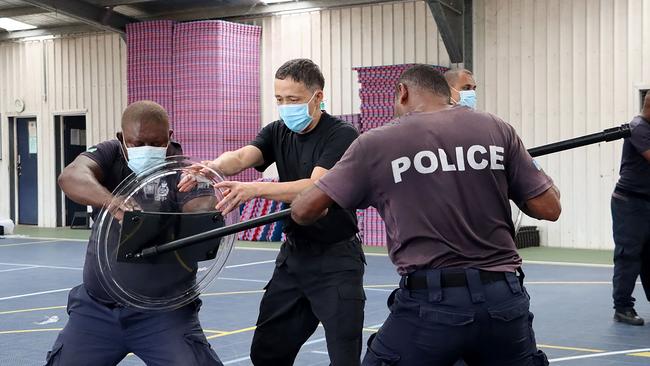
One of the Australian Defence Force’s top generals has warned a Chinese naval presence in the Solomon Islands would “change the calculus” for the ADF in its air and sea operations across the region.
The ADF’s Joint Operations Commander, Lieutenant General Greg Bilton, said the prospect of a Chinese base in the Solomon Islands under a looming security pact between the countries would require Australia to “change our patrolling patterns and our maritime awareness activities”.
“It does change the calculus. If Chinese navy vessels are operating from the Solomon Islands, they are in much closer proximity to the Australian mainland obviously,” he said.
“That would change the way we would undertake day to day operations, particularly in the air and at sea.”
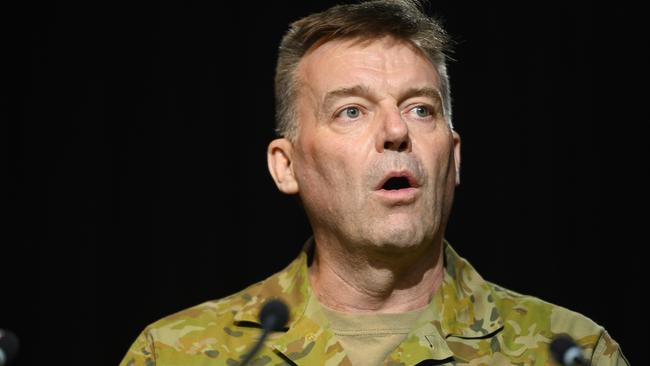
His comments came just days after Solomon Islands Prime Minister Manasseh Sogavare declared he was ready to sign the new security agreement with China, and blasted suggestions it could lead to a Chinese base in his country as “misinformation”.
It’s understood Australian officials have told Solomon Islands counterparts they are less concerned with Mr Sogavare’s intentions than those of Beijing, and warned the agreement could result in a gradual but irreversible increase in China’s security presence in the country.
They have told the Sogavare government that the agreement would force Australia to invest more in regional security, potentially reducing the pool of development funds available for the country.
Australian officials believe lobbying by fellow Pacific Island leaders offers the best hope of convincing Mr Sogavare to hold-off on the agreement, with some warning the pact is a violation of the Pacific Islands Forum’s Biketawa agreement to deal collectively with security challenges.
It’s understood regional heavyweights Papua New Guinea and Fiji are sympathetic to Australia’s concerns, and have undertaken to raise the matter at leader level.
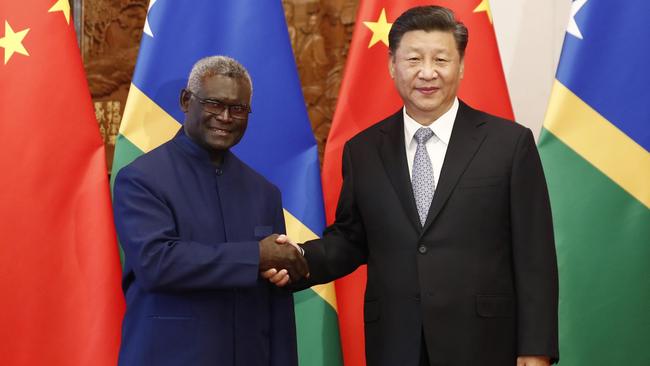
Defence Minister Peter Dutton said Australia, which had long demonstrated its support for its Pacific “family”, was firmly opposed to the security pact.
“We don’t believe it is in the best interests of the Solomon Islands to be engaging in an exercise that could lead to a military presence in the Solomon Islands,” he said.
“And frankly I think that is the view of many of the neighbours and others within the Indo-Pacific, and we have been very clear about that.”
Australian Federal Police chief commissioner Reece Kershaw told Senate Estimates that the AFP would resist Chinese attempts to alter training programs for Solomon Islands police, under a separate memorandum of understanding with China on law and order support.
He said Australia had a long-term commitment to commitment to supporting the Royal Solomon Islands Police Force, which was underscored by the 2004 murder of AFP officer Adam Dunning in Honiara.
“We have lost one of our own over there, so we are not going to let other nations come in and try and change that whole framework,” Mr Kershaw said.
“It works. The community crime dropped. The police force is more professional than ever before, and we want to maintain that position of being the partner of choice in the region.
“It’s very difficult, it’s very challenging for us. But we know that we have those relationships and rivers do run deep in this area.”
Chinese police deployed to the Solomon Islands in February to help train local officers, three months after AFP and Australian Defence Force personnel mobilised there amid rioting aimed at unseating Mr Sogavare.
Mr Kershaw said the AFP had urged Solomon Islands counterparts to ensure the Chinese training was “complimentary, and doesn’t … run counter to how we have trained those specialised units”.
In an address to the Solomon Islands parliament on Monday, Mr Sogavare branded the backlash against the security agreement as “insulting” because it suggested “we are unfit to manage our sovereign affairs”.
““It is clear that we need to diversify the country’s relationship with other partners, and what is wrong with that?” he said.


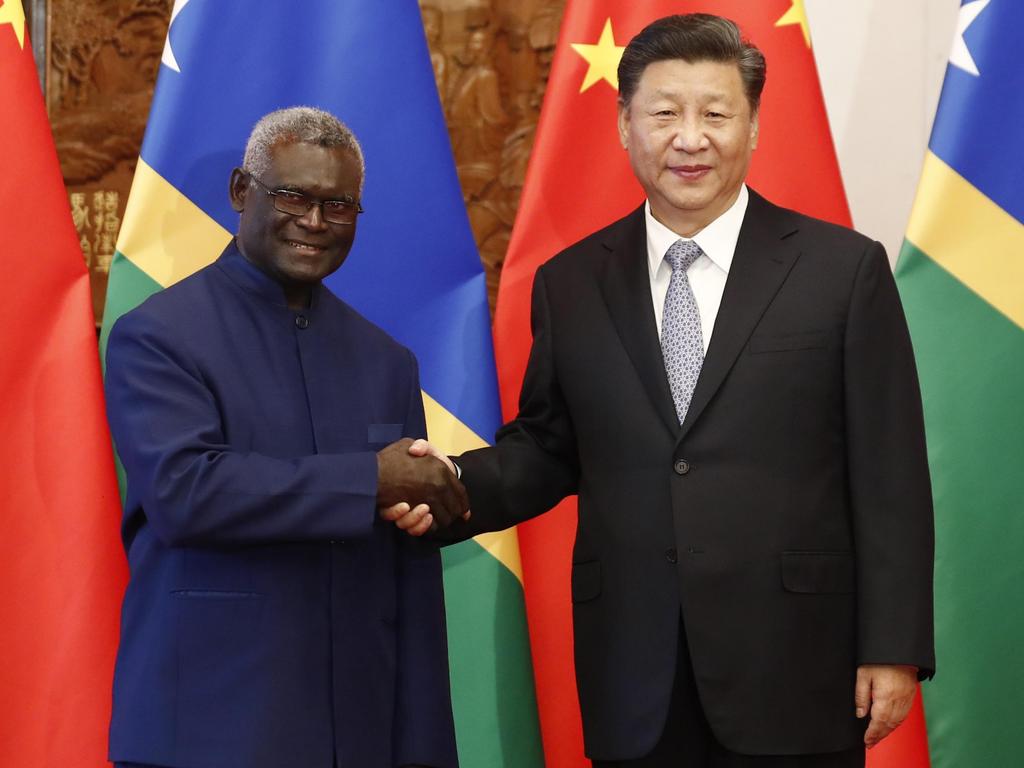

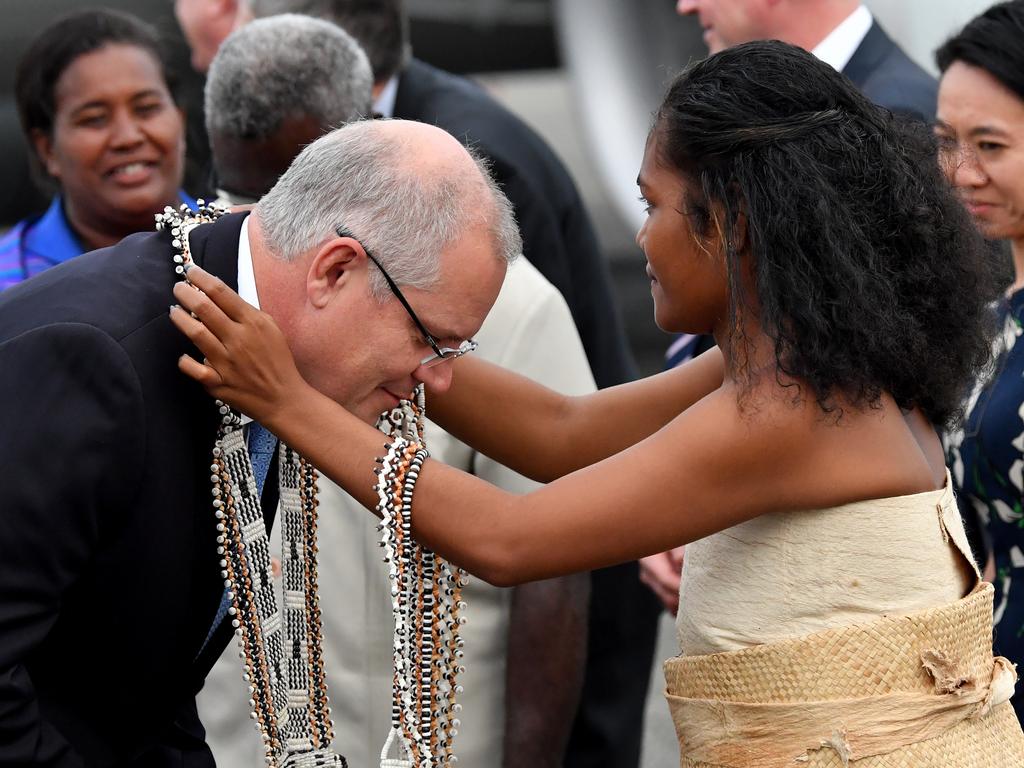



To join the conversation, please log in. Don't have an account? Register
Join the conversation, you are commenting as Logout